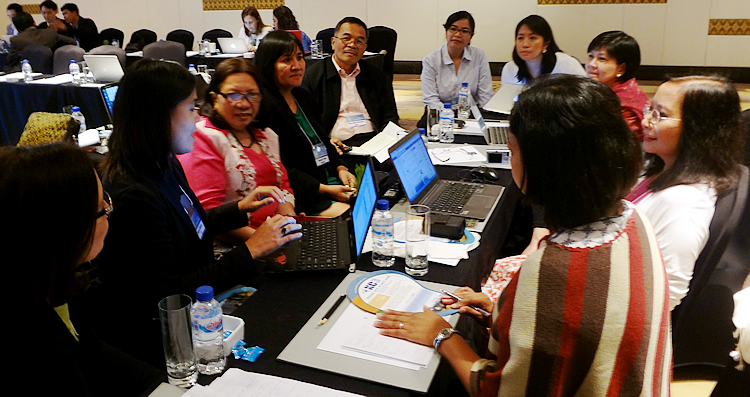The CSIRO presented its 18-month Technical Assistance (TA) project of the ADB at its inception and planning workshop in Bali, Indonesia, where the whole day of 1 July 2015 was devoted to consulting and discussing with stakeholders the TA outputs, work plan, resource allocation, and documentation. ADB designed the TA to support the efforts of the three pilot countries to better manage climate risks by (1) providing scientifically-sound and decision-oriented climate data and projections; and (2) enhancing their technical capacity to generate, interpret, and apply climate information.
According to Dr. Jack Katzfey, senior climate specialist at CSIRO and TA project leader, the vision of the TA is to build a Regional Climate Consortium that will be the main provider of information on climate and impact assessment in the Asia-Pacific Region. It will feature a portal that would provide a window for knowledge products and advice, current and future climate information, and vulnerability and impact assessment information.
In explaining the rationale of the TA, Dr. Cinzia Losenno, ADB Senior Climate Change Specialist, said that ADB’s developing member countries (DMCs) have asserted a need for improved resources and tools to support assessment of climate change impact, vulnerability, and adaptation options. She likewise noted the limited communication between climate science and adaptation communities; difficulty in discovering and accessing existing studies and knowledge products on climate change adaptation and mitigation; limited documentation of successful adaptations; questionable use of climate projections and scenarios in adaptation activities; and limited guidance in their proper use and interpretation.
The implementing agencies of the project include the meteorological/weather bureau agencies in its three pilot countries, namely, Department of Science and Technology (DOST) Philippine Atmospheric, Geophysical, and Astronomical Services Administration (PAGASA), Badan Meteorologi Klimatologi dan Geofisika (BKMG) in Indonesia, and Thai Meteorological Department (TMD).
Present in the meeting were national consultants and invited stakeholders from the national planning agency in Indonesia (BAPENAS); Manila Observatory, PAGASA, Oscar M. Lopez Center on Climate Change Adaptation and Disaster Risk Management (OML Center), GIZ/Climate Change Commission in the Philippines; Chiang Mai and Kasetsart Universities in Thailand; and SEARCA, among others. (Maria Celeste H. Cadiz)
